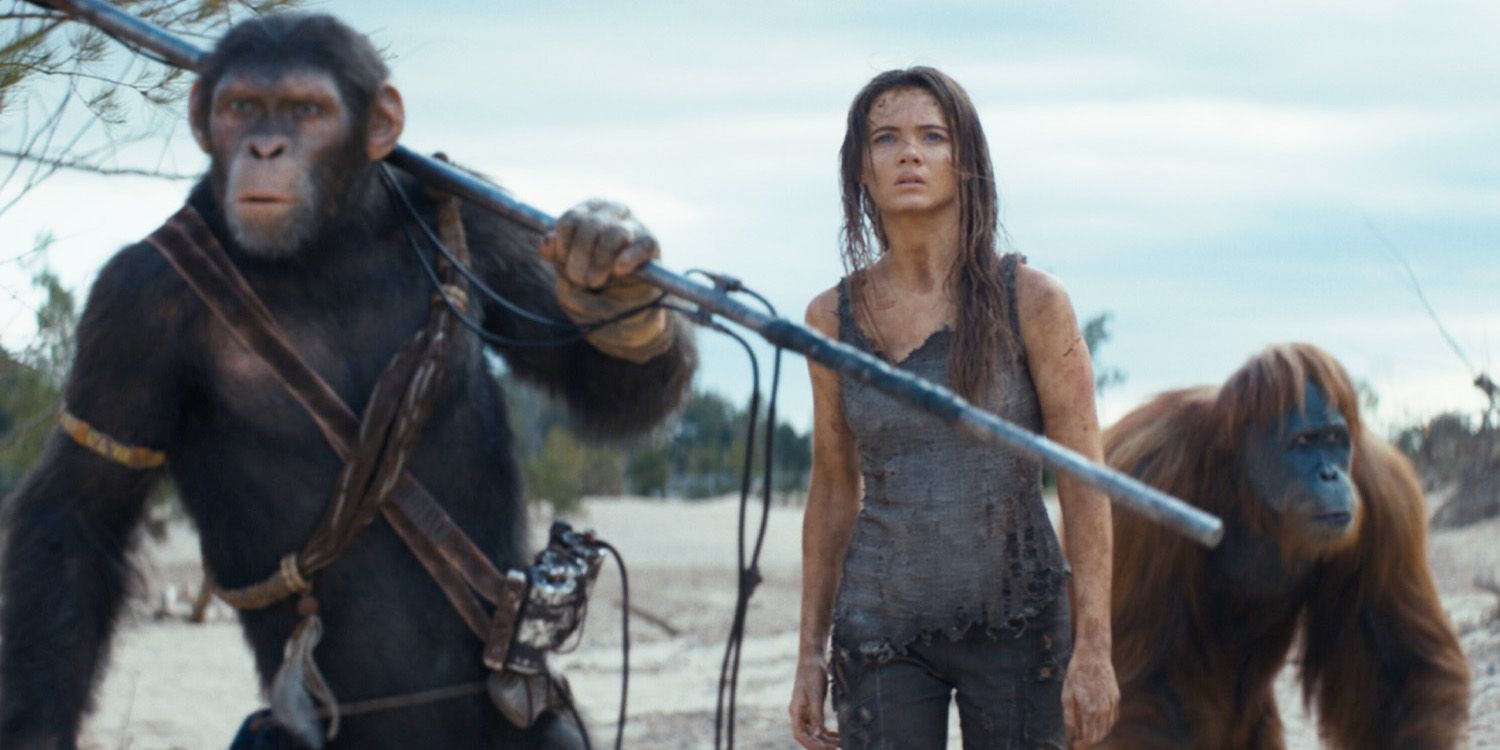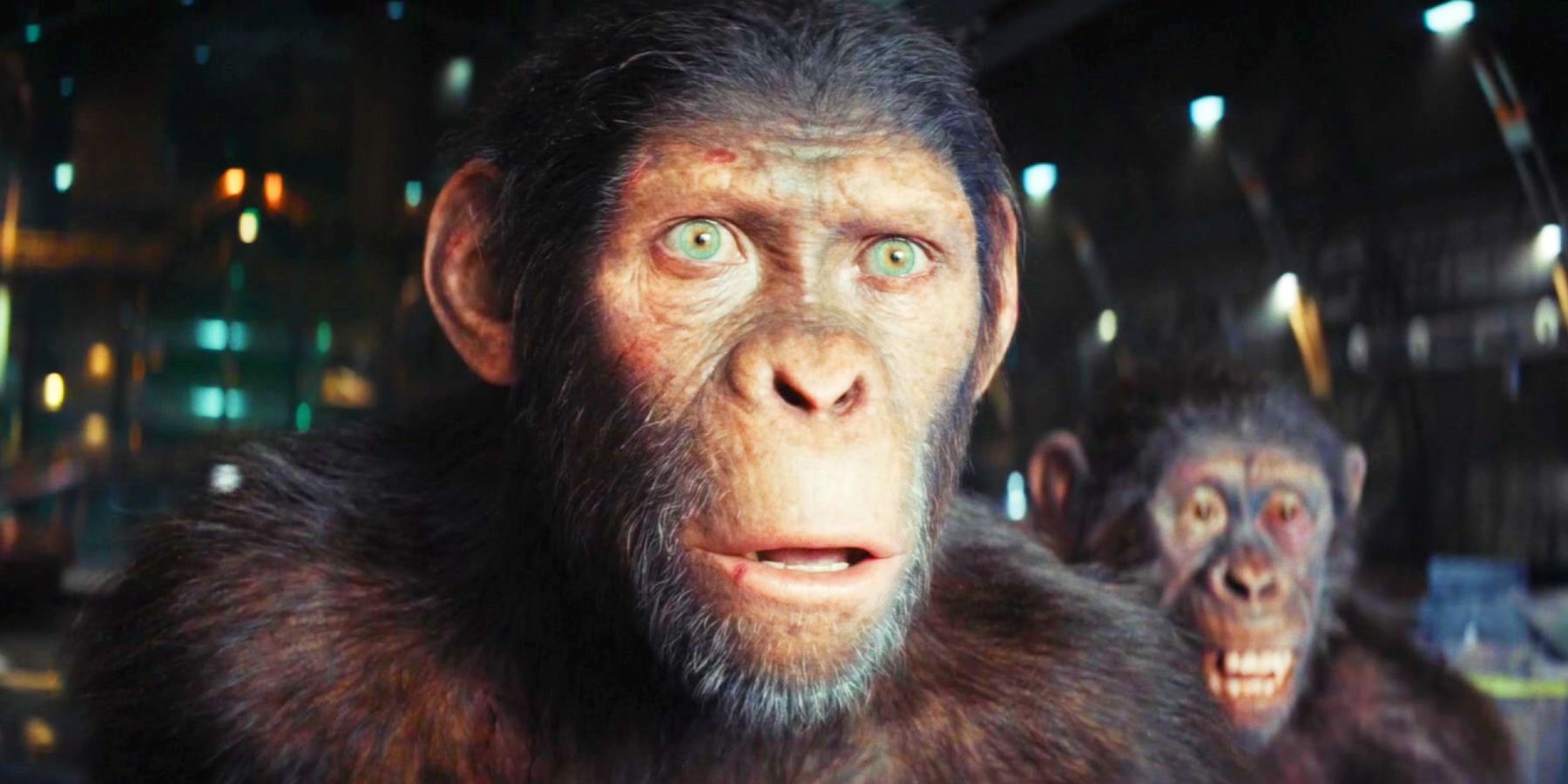"Kingdom of the Planet of the Apes": A Bold New Chapter in a Legendary Franchise
Kingdom of the Planet of the Apes (2024) marks a triumphant return to the iconic science fiction saga that has captivated audiences for over five decades. Directed by Wes Ball, known for his work on The Maze Runner trilogy, this installment serves as both a continuation of the rebooted Planet of the Apes series and a fresh beginning. Set many years after the reign of Caesar, the wise and compassionate leader from the previous trilogy, this new chapter explores a world where apes have become the dominant species, and humans have largely regressed into a feral and diminished state.
The film centers around Noa, a young chimpanzee living in a peaceful, isolated ape clan. Noa’s life is thrown into turmoil when a brutal tyrant named Proximus Caesar—who falsely claims to be the ideological successor of the original Caesar—leads a militarized faction of apes on a mission to conquer and enslave other clans. Driven by ambition and distorted interpretations of Caesar’s teachings, Proximus represents a dangerous evolution in the ape society: one ruled not by wisdom and empathy, but by power and fear.

Noa embarks on a journey of survival and discovery, accompanied by a resourceful human girl named Mae, who holds vital knowledge about the past and the possible future of both species. Together, they navigate treacherous environments, uncover forgotten technology, and form an unlikely bond that challenges the prejudices of both apes and humans. Through Noa’s eyes, the audience witnesses a profound internal struggle—between tradition and progress, peace and conquest, and ultimately, what it means to be truly civilized.
Visually, Kingdom of the Planet of the Apes is stunning. The film makes excellent use of cutting-edge motion capture and CGI technology to bring its characters to life with remarkable realism and emotional depth. The landscapes are vast and hauntingly beautiful, evoking a sense of wonder and decay in equal measure. The direction by Wes Ball emphasizes scale and spectacle, while still maintaining an intimate focus on character and moral dilemmas.

Thematically, the film explores timeless questions about power, legacy, and coexistence. While earlier films in the franchise often presented apes and humans in black-and-white terms of good versus evil, Kingdom introduces more nuance. Neither species is wholly innocent or corrupt. Instead, the film suggests that hope lies in understanding, compassion, and shared responsibility for the planet.
Performances by the cast—especially Owen Teague as Noa and Freya Allan as Mae—add emotional weight to the story. Teague’s portrayal of Noa is particularly compelling, as he balances youthful idealism with the burden of leadership. Kevin Durand’s Proximus Caesar, meanwhile, provides a chilling antagonist whose charisma and cruelty mirror the dangers of fanaticism.

Kingdom of the Planet of the Apes successfully expands the franchise’s mythology while respecting its roots. It is a visually breathtaking, emotionally resonant, and thematically rich film that asks important questions about the future of both apes and humans. For longtime fans and newcomers alike, it delivers an exciting and thoughtful cinematic experience.


-1751938047-q80.webp)